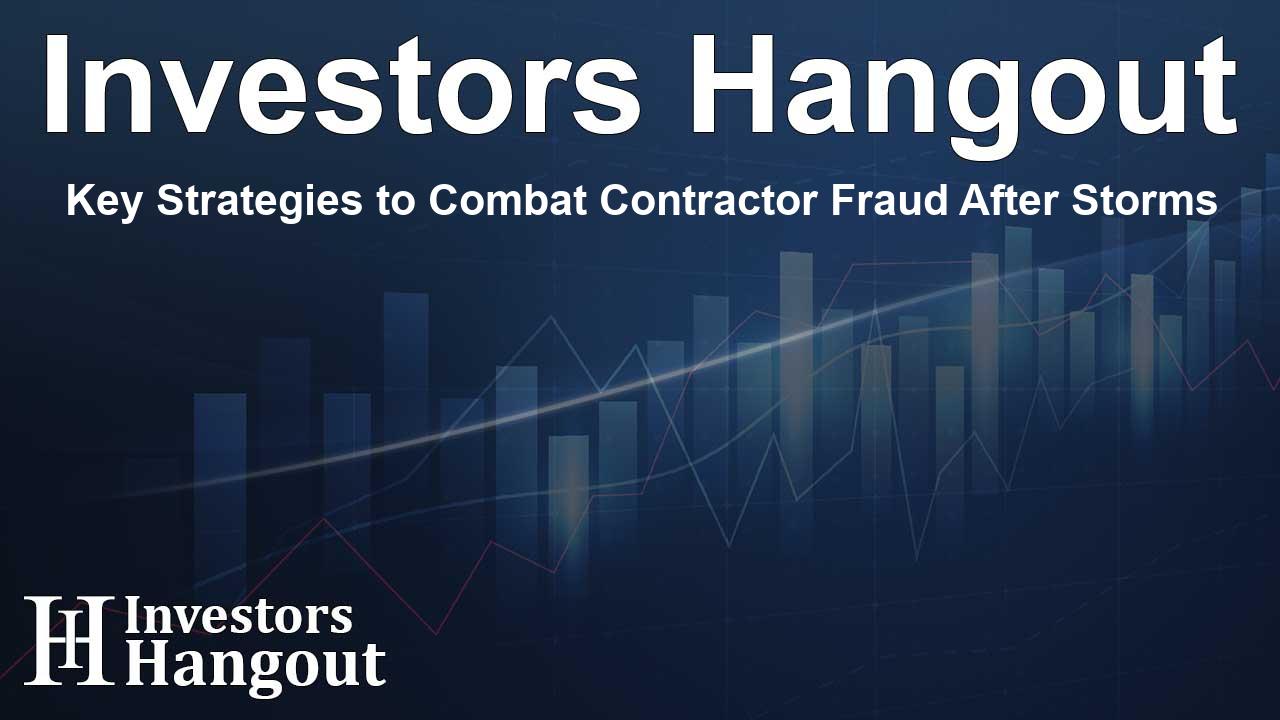Key Strategies to Combat Contractor Fraud After Storms

Understanding Contractor Fraud Risks
In the wake of severe weather events, the risk of contractor fraud can escalate dramatically. Organizations with property damage from storms often find themselves targeted by unscrupulous contractors offering repair services that may not deliver what they promise. These situations can lead to significant financial losses and prolonged recovery efforts.
Why Contractor Fraud Increases After Storms
During challenging times following major storms, individuals and organizations are often in vulnerable positions. Desperate for quick repairs, they may make hasty decisions when hiring contractors. This vulnerability is what dishonest contractors prey upon, aiming to exploit the storm's aftermath for their gain.
Key Risks to Recognize
Awareness is the first step to protection. Here are some risks organizations should remain vigilant about:
- Unsolicited Offers: Be wary of unexpected visits or phone calls from contractors who claim immediate availability to help.
- Claims Handling: Steer clear of contractors who offer to manage your insurance claims unless they are licensed public adjusters.
- Deductible Deals: If someone suggests covering your insurance deductible, it is a red flag.
- Payment Practices: Do not feel forced to make large upfront payments—legitimate contractors will not pressure you to do so.
- Licensing and Insurance: Always verify that a contractor has valid licenses and insurance.
- Written Contracts: Obtain detailed contracts clearly outlining the scope of work, costs, and timelines.
What to Do If You Suspect Fraud
If you suspect that a contractor may be fraudulent, taking immediate action is essential:
- Gather all relevant documents, including contracts, estimates, and invoices associated with the work.
- Report any suspicious behaviors or incidents to both your insurance provider and local law enforcement authorities.
- Remember that reporting concerns is important for your safety and that of others; there is no shame in seeking support.
About Church Mutual
Church Mutual Insurance Company, S.I., has proudly provided specialized insurance for various organizations since 1897. With a focus on religious entities, public and private K-12 schools, colleges, camps, and nonprofits, Church Mutual is dedicated to offering the right insurance coverage tailored to individual needs across the United States. Visitors seeking more information can explore churchmutual.com.
Frequently Asked Questions
What are the signs of contractor fraud?
Signs of contractor fraud include unsolicited offers, pressure to make large upfront payments, and lack of detailed contracts.
How can I protect myself from contractor fraud?
Ensure all contracts are detailed, verify licensing and insurance, and stay aware of unusual payment demands.
What should I do if I suspect contractor fraud?
Gather evidence and report any fraudulent activity to your insurance agency and local authorities.
Is it common for fraud to happen after storms?
Yes, fraud risks increase significantly after storms when victims are most vulnerable.
Who can I contact for more information on insurance against fraud?
You can contact your insurance provider, who can guide you on protecting against contractor fraud and other risks.
About Investors Hangout
Investors Hangout is a leading online stock forum for financial discussion and learning, offering a wide range of free tools and resources. It draws in traders of all levels, who exchange market knowledge, investigate trading tactics, and keep an eye on industry developments in real time. Featuring financial articles, stock message boards, quotes, charts, company profiles, and live news updates. Through cooperative learning and a wealth of informational resources, it helps users from novices creating their first portfolios to experts honing their techniques. Join Investors Hangout today: https://investorshangout.com/
Disclaimer: The content of this article is solely for general informational purposes only; it does not represent legal, financial, or investment advice. Investors Hangout does not offer financial advice; the author is not a licensed financial advisor. Consult a qualified advisor before making any financial or investment decisions based on this article. The author's interpretation of publicly available data shapes the opinions presented here; as a result, they should not be taken as advice to purchase, sell, or hold any securities mentioned or any other investments. The author does not guarantee the accuracy, completeness, or timeliness of any material, providing it "as is." Information and market conditions may change; past performance is not indicative of future outcomes. If any of the material offered here is inaccurate, please contact us for corrections.